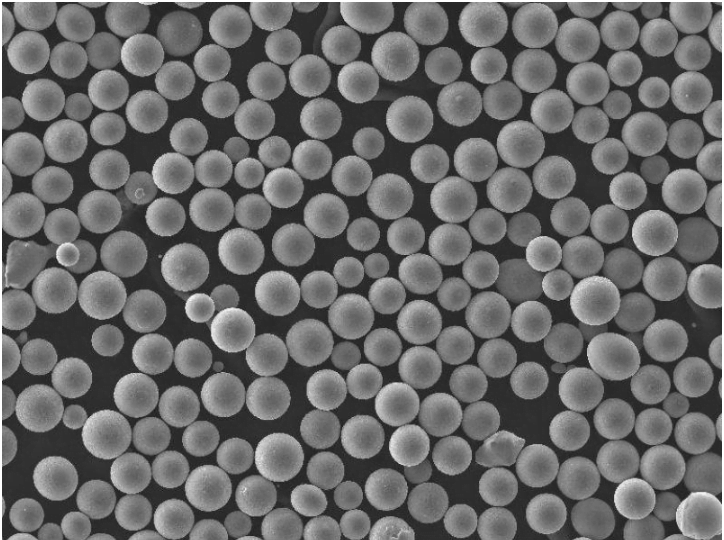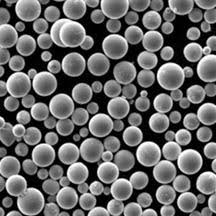
Best 17-4PH stainless steel powder for 3D Printing
Overview of 17-4PH Stainless Steel Powder for 3D Printing 17-4PH is a precipitation hardening stainless steel powder widely used for additive manufacturing of high-strength, corrosion-resistant components across aerospace, medical, automotive, and general engineering applications. This article provides a detailed guide to 17-4PH powder for 3D printing. It covers composition, properties, print parameters, applications, specifications, suppliers,…
Malé MOQ
Flexibilní zásobování stovkami produktů
Podpora přizpůsobení
Prášek na míru podle odvětví
Rychlé odeslání
DHL Express, bezpečně a rychle přímo do vašich rukou
Overview of 17-4PH Stainless Steel Powder for 3D Printing
17-4PH is a precipitation hardening stainless steel powder widely used for additive manufacturing of high-strength, corrosion-resistant components across aerospace, medical, automotive, and general engineering applications.
This article provides a detailed guide to 17-4PH powder for 3D printing. It covers composition, properties, print parameters, applications, specifications, suppliers, handling, inspection, comparisons, pros and cons, and FAQs. Key information is presented in easy-to-reference tables.
Composition of 17-4PH Powder
17-4PH is a chromium-copper precipitation hardening stainless steel with a composition of:
| Element | Hmotnostní % | Účel |
|---|---|---|
| Železo | Balance | Hlavní maticový prvek |
| Chromium | 15 – 17.5 | Oxidační odolnost |
| Měď | 3 – 5 | Tvrzení vytvrzováním |
| Nikl | 3 – 5 | Austenite stabilizer |
| Niob | 0.15 – 0.45 | Karbidová dřívka |
| Mangan | 1 max. | Deoxidátor |
| Křemík | 1 max. | Deoxidátor |
| Uhlík | 0.07 max | Strengthener and carbide former |
The copper provides precipitation hardening while chromium imparts corrosion resistance.
Properties of 17-4PH Powder
17-4PH possesses a versatile combination of properties:
| Nemovitost | Popis |
|---|---|
| vysoká pevnost | Tensile strength up to 1310 MPa in aged condition |
| Tvrdost | Up to 40 HRC when aged |
| Odolnost proti korozi | Comparable to 316L stainless in many environments |
| Tuhost | Superior to martensitic stainless steels |
| Odolnost proti opotřebení | Better than 300 series stainless steels |
| Vysoká teplotní stabilita | Strength maintained up to 300¡«C |
The properties make it suitable for diverse applications, from plastic mold tooling to aerospace components.

3D Printing Parameters for 17-4PH Powder
Typical parameters for printing 17-4PH include:
| Parametr | Typická hodnota | Účel |
|---|---|---|
| Výška vrstvy | 20-100 Ã×m | Balance speed and resolution |
| Výkon laseru | 150-400 W | Dostatečné tání bez odpařování |
| Rychlost skenování | 400-1000 mm/s | Productivity vs density |
| Rozteč poklopů | 100-200 Ã×m | Density and properties |
| Podpůrná struktura | Minimální | Snadné odstranění |
| Izostatické lisování za tepla | 1120¡«C, 100 MPa, 3h | Odstranění pórovitosti |
Parameters are optimized for properties, time, and post-processing requirements.
Applications of 3D Printed 17-4PH Parts
Additively manufactured 17-4PH components are used in:
| Průmysl | APLIKACE |
|---|---|
| Letectví a kosmonautika | Structural brackets, fixtures, actuators |
| Medical | Dental implants, surgical instruments |
| Automotivní | High strength fasteners, gears |
| Spotřebitel | Watch cases, sporting equipment |
| Průmyslový | End-use metal tooling, jigs, fixtures |
Benefits of AM include complex geometries, customization, reduced lead time and machining.
Specifications of 17-4PH Powder for 3D Printing
17-4PH powder must meet strict specifications:
| Parametr | Specifikace |
|---|---|
| Rozsah velikosti částic | 15-45 Ã×m typicky |
| Tvar částice | Sférická morfologie |
| Zdánlivá hustota | > 4 g/cc |
| Hustota poklepání | > 6 g/cc |
| Hmotnostní průtok halou | > 23 s pro 50 g |
| Čistota | >99.9% |
| Obsah kyslíku | <100 ppm |
K dispozici jsou vlastní distribuce velikosti a řízené úrovně vlhkosti.
Dodavatelé prášku 17-4PH
Reputable suppliers include:
| Dodavatel | Umístění |
|---|---|
| LPW Technologie | Spojené království |
| Sandvik Osprey | Spojené království |
| Carpenter Additive | USA |
| Praxair | USA |
| Erasteel | Švédsko |
| AMETEK | USA |
Prices range from $50/kg to $120/kg based on purity, size, and order quantity.
Handling and Storage of 17-4PH Powder
As a reactive material, 17-4PH powder requires controlled handling:
- Store in cool, dry, inert environments away from moisture
- Prevent oxidation and contamination during handling
- Use conductive containers grounded to prevent static buildup
- Zabraňte hromadění prachu, abyste minimalizovali riziko výbuchu.
- Doporučené místní odsávací větrání
- Wear PPE and avoid inhalation
Careful storage and handling ensures optimal powder condition.
Inspection and Testing of 17-4PH Powder
Mezi metody testování kvality patří:
| Metoda | Parameters Checked |
|---|---|
| Sítový rozbor | Distribuce velikosti částic |
| Skenovací elektronová mikroskopie | Morfologie částic |
| EDX | Chemie a složení |
| XRD | Přítomné fáze |
| Pyknometrie | Hustota |
| Hmotnostní průtok halou | Tečení prášků |
Testování podle norem ASTM ověřuje kvalitu prášku a konzistenci šarží.
Comparing 17-4PH to Alternative Powders
17-4PH compares to other alloys as:
| Slitina | Síla | Odolnost proti korozi | Cena | Schweißbarkeit |
|---|---|---|---|---|
| 17-4PH | Výborný | Dobré | Střední | Férová |
| 316L | Střední | Výborný | Střední | Výborný |
| IN718 | Dobré | Dobré | Vysoká | Férová |
| CoCr | Střední | Férová | Střední | Výborný |
With balanced properties, 17-4PH provides the best combination of strength, corrosion resistance, and cost for many applications.
Pros and Cons of 17-4PH Powder for 3D Printing
| Klady | Nevýhody |
|---|---|
| Vysoký poměr pevnosti a hmotnosti | Lower oxidation resistance than austenitic stainless steels |
| Good combination of strength and corrosion resistance | Požadované následné zpracování, jako je HIP a tepelné zpracování |
| Lower cost than exotic alloys | Controlled atmosphere storage needed |
| Established credentials in AM | Obtížné svařování a obrábění |
| Comparable properties to wrought material | Susceptible to pitting and crevice corrosion |
17-4PH enables high-performance printed parts across industries, though not suited for extreme environments.
Frequently Asked Questions about 17-4PH Powder for 3D Printing
Q: What particle size range works best for printing 17-4PH alloy?
A: A range of 15-45 microns provides optimal powder flow while enabling high resolution and density in the printed parts.
Q: What post-processing is required after printing with 17-4PH?
A: Hot isostatic pressing and heat treatment are usually necessary to eliminate internal voids, relieve stresses, and achieve optimal properties.
Q: What material is 17-4PH most comparable to for AM applications?
A: It is closest to 316L in corrosion resistance but much stronger. 17-4PH provides the best overall combination for many high-strength applications above 300 series stainless.
Q: Does 17-4PH require supports when 3D printing?
A: Minimal supports are recommended on overhangs and complex inner channels to prevent deformation during printing and allow easy removal.
Q: What industries use additively manufactured 17-4PH components?
A: Aerospace, medical, automotive, industrial tooling, and consumer products are the major application areas benefitting from 3D printed 17-4PH parts.
Q: What accuracy and finish is achievable with 17-4PH AM parts?
A: After post-processing, 17-4PH printed components can achieve dimensional tolerances and surface finish comparable to CNC machined parts.
Q: What density can be expected with optimized 17-4PH prints?
A: Densities exceeding 99% are routinely achieved with 17-4PH using ideal parameters tailored for the alloy, matching wrought properties.
Q: Is 17-4PH compatible with powder bed fusion processes?
A: Yes, it can be processed using selective laser melting (SLM), direct metal laser sintering (DMLS), and electron beam melting (EBM).
Q: What defects can occur when printing 17-4PH components?
A: Potential defects are cracking, distortion, porosity, incomplete fusion, and surface roughness. They can be minimized through optimized print parameters.
Q: Can support structures be removed easily from 17-4PH printed parts?
A: Properly designed minimal supports are easy to detach given the excellent mechanical properties of the alloy in the aged condition.
Kontaktujte nás nyní
Kontaktujte nás pro aktuální nabídky produktů a skladovou dostupnost.
